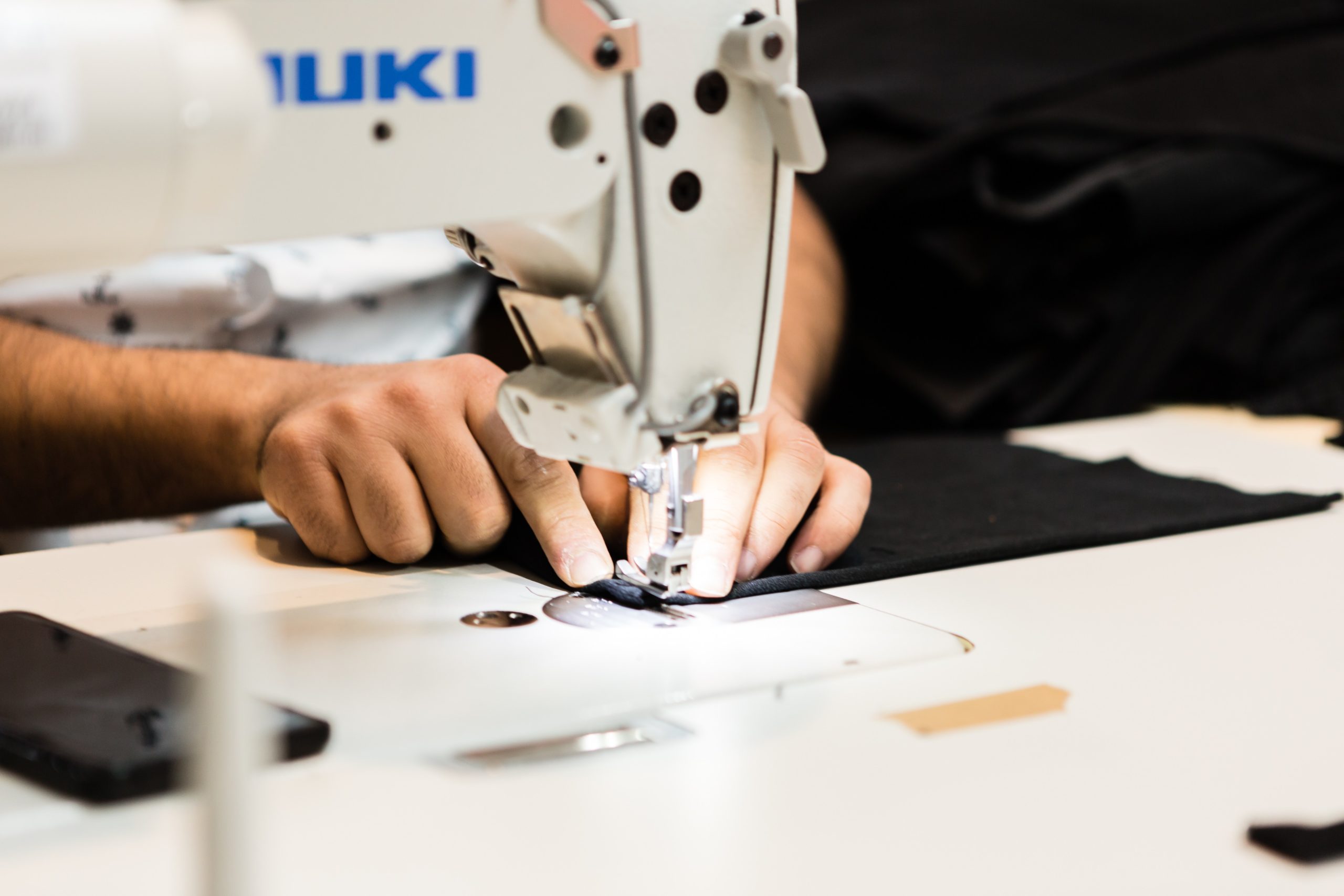Design for Minimal Waste
This circular design strategy refers to the waste that is generated all along the textiles value chain, including;
- Post-industrial waste: Textile by-product from the manufacturing stage e.g. clipping waste, offcuts, roll ends and remnants;
- Pre-consumer waste: Finished textile products which are unfit for sale at a regular retail store e.g. product returns, manufacturing rejects, and deadstock;
- Post-consumer waste: Used textiles products that have been disposed by the consumer e.g. used clothing, footwear, accessories, linens, and other household soft goods collected via clothing banks, donation points, in-store collection schemes, or waste management companies.
The objective of this circular design strategy is to design products in such a way that as little waste as possible is generated during the production and/or designing products using existing post-industrial, pre-consumer or post-consumer textile waste.
To apply this design strategy, designers can;
- Work with zero / minimal waste pattern cutting techniques during the production process, in order to make efficient use of all materials and minimise post-industrial waste
- Utilise 3D modelling technologies, such as CLO and Lectra, in order to minimise the need for repeat sampling and toiling, during the design process
- Source and/or upcycle post-industrial, pre-consumer and post-consumer textiles, instead of using virgin materials.

Maker's Unite
What circular challenge / opportunity is the case study trying to address?
Established in 2016 in the Netherlands, Makers Unite is a creative platform and social enterprise that works with skilled newcomers arriving in the Netherlands who have a refugee background. They create sustainable products by upcycling secondary materials, such as life-vests discarded on Greek shores. Through these products, they aim to provide a powerful positive message and facilitate dialogue about how migration can be an asset to society. In doing so, Maker’s Unite also strives to make the circular transition more inclusive. Production is led by their in-house team of tailors who collaborate with international brands, like Ben and Jerrys, Filling Pieces on the co-creation of product collections.
How does it work:
Maker’s Unite began with a project. In 2015, more than 850,000 people arrived in Greece by sea, with more than 500,000 of these arriving on the island of Lesbos. As well as dealing with large numbers of refugee arrivals, islanders were also faced with an unusual problem: hundreds of thousands of life vests that were left on Greek shores. When the people behind the Dutch social enterprise Makers Unite heard about the problem, they decided to bring 5,000 lifejackets to Amsterdam. The newcomer-lead initiative up-cycled the discarded life-vests into Re-Vest Life Ribbons, and took to the streets of Amsterdam on King’s Day to spark conversation about the migrant crisis.
Since then, the movement has grown into a globally recognised network of creative locals and newcomers, designing and co-creating a diversity of sustainable products. The Maker’s Unite team has now pioneered creative talent development programmes which have benefited over 130 newcomers with refugee backgrounds, 66% of which have been successfully matched to their next professional step within the Dutch creative industries.
For example, the Makers Unite Creative Lab is a six-week course offered for free to newcomers. Participants bring with them existing expertise in embroidery, crafts and other creative disciplines. Over the course of the programme they take part in masterclasses, receive job coaching, get help with CV writing and complete challenges set by businesses. After the course, they are supported in matching their skills to further opportunities in employment or training. Their programmes and the salaries of former newcomers that work as tailors in their workshop are funded through a combination of grant funding and commercial income from partnerships and the sale of their main collections of upcycled products.
More recently, Maker’s Unite has launched the United Repair Centre. The United Repair Centre makes it easy for leading apparel brands in Northwestern Europe to achieve their circularity goals by offering a high-quality repair service and by finding recycling outlets for what can’t be repaired, while making a positive social impact by providing training and employment opportunities to refugees, students and job seekers. Customers who need a product to be repaired, contact the brand in question who directs them to send the item to the United Repair Centre and provide them with a form and postage label. The tailors then repair the item within 30 mins and return it directly to the customer. The centre is being launched this year, with a number of launching brand partners.


